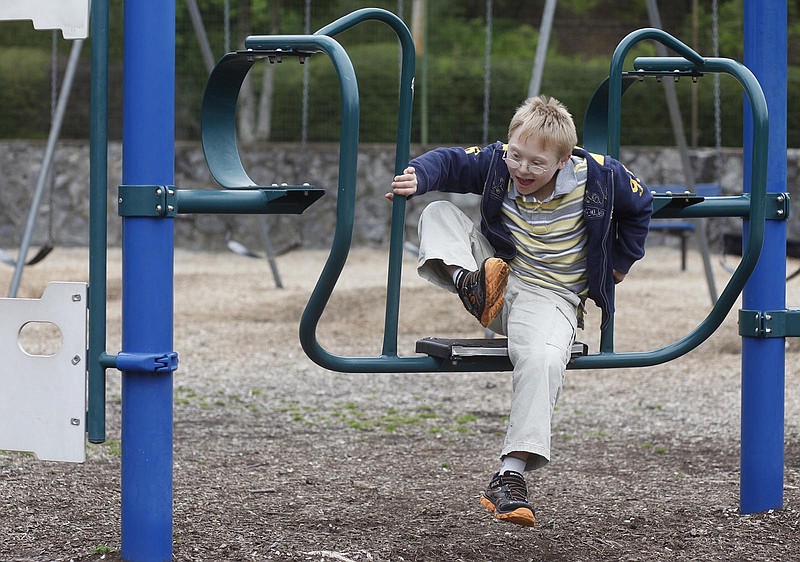Attorneys in a case between the Hamilton County Department of Education and the parents of a student with Down syndrome concluded their civil trial Tuesday afternoon.
Now, after six days of testimony, the lawyers on both sides - Scott Bennett for the school boards, Justin Gilbert for the family - will have until Feb. 12 to file motions arguing why their side presented the better case. U.S. District Court Judge Curtis Collier will issue a ruling at a later date.
The trial revolves around Luka Hyde, a former Normal Park Museum Magnet student who has Down syndrome. At the end of his second-grade school year in 2013, Hamilton County teachers and administrators decided he needed to move to a Red Bank Elementary Comprehensive Development Classroom, where he would spend more time with other "intensive needs" students.
Luka's parents, Deborah and Greg, say this decision would have jeopardized his future because he will live alongside the general population as an adult. He needs to be educated alongside that general population, they say. The decision to move him to Red Bank Elementary CDC is "illegal segregation," according to their lawsuit.
The Hydes have moved Luka to The Montessori School, a private school. They say he is thriving there. But throughout the federal trial this month, Hamilton County administrators have argued their decision to move Luka to Red Bank CDC would have provided him with the best possible education.
They continued that argument Tuesday, when Bennett called his final witness, Debbie Rosenow, a literacy coach for the school district. Rosenow testified she evaluated Luka when she visited The Montessori School in September 2015.
Her evaluation was divided into three parts. First, she gave him lists of 20 words, grouped by grade level. If he could identify at least 15 of those words, he could read at that level. When she evaluated Luka, she said, he passed the second- and third-grade levels but couldn't make it through the list for fourth grade. He is now in fifth grade.
Next, Rosenow asked him to read a couple of books. He was able to read one, she said, but in the other book he recognized fewer than 95 percent of the words - the benchmark for whether the reading is appropriate for him.
Rosenow also said she asked him to answer questions about the readings. She said he could comprehend what happened in the books but could not draw conclusions - being able to answer a question like "What did you learn?" for example.
Like many other Hamilton County administrators during the trial, Rosenow argued that Luka would be best served outside of a general education classroom. She said he needs specialized instruction focusing on phonics, as well as readings that are easier than what most children in his grade level are consuming.
"It would be very difficult when you're looking at what is required in a fourth grade, general education classroom," she testified. "Students are not receiving instruction in phonics. There's a disconnect between what he would need to grow and what would be provided in the classroom."
On cross-examination, Gilbert pointed out that Rosenow does not have a degree in special education. She also testified that she had never evaluated a child with Down syndrome before working with Luka. The evaluation itself also was not tailored for students with Down syndrome.
Gilbert argued that the assessment does not necessarily reflect Luka's intelligence level because children with Down syndrome can struggle with memory and expression - potentially making it appear that he is not soaking in some information. Gilbert also argued that a child like Luka could still attend a general education class for most of the day, with a separate teacher taking him aside for "pull out" instruction that targets his specific needs.
"Those things could be worked on in a resource room," Gilbert said, while cross examining Rosenow.
"They could be worked on," she said. "Yes."
Contact staff writer Tyler Jett at tjett@timesfreepress.com or at 423-757-6476.
